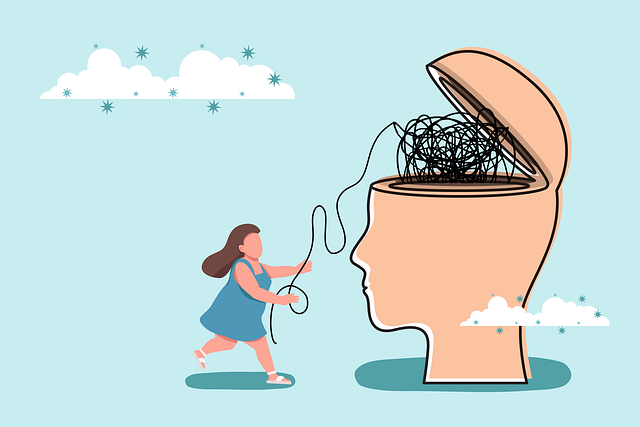Mental wellness involves holistic care for emotional, psychological, and social well-being, with self-care as a vital component in today's fast-paced world. Parker Dialectical Behavioral Therapy (DBT), developed by Dr. Marsha Linehan, offers a comprehensive approach using techniques like Mindfulness Meditation to enhance mental wellness through emotion management, mindfulness cultivation, and skill development in four key areas: mindfulness, emotion regulation, distress tolerance, and interpersonal effectiveness. A balanced self-care routine tailored to personal needs, including joyful activities, boundaries, support, and regular reflection, is crucial for overall well-being, similar to DBT's emphasis on tailoring goals and integrating practices into daily life.
Developing a robust mental wellness self-care routine is essential for fostering resilience and overall well-being. This article explores a structured approach to enhancing mental health through self-care, focusing on the principles of Dialectical Behavioral Therapy (DBT). We’ll delve into understanding mental wellness, the benefits of DBT in building self-care routines, identifying personal needs, and setting achievable goals. By creating a balanced routine that incorporates mindfulness, emotion regulation, distress tolerance, and interpersonal effectiveness, you can transform your mental health journey.
- Understanding Mental Wellness and Self-Care
- The Role of Dialectical Behavioral Therapy (DBT) in Self-Care Routine Development
- Identifying Personal Needs and Setting Realistic Goals
- Creating a Balanced Routine: Mindfulness, Emotion Regulation, Distress Tolerance, and Interpersonal Effectiveness
- Integrating Self-Care into Daily Life and Measuring Progress
Understanding Mental Wellness and Self-Care

Mental wellness is a holistic concept encompassing our emotional, psychological, and social well-being. It’s about recognizing and valuing our unique mental health needs, just as we prioritize physical health. Developing a self-care routine is an act of self-preservation and empowerment, enabling individuals to navigate life’s challenges with resilience. This involves cultivating healthy habits that promote calmness, enhance emotional regulation, and foster overall mental equilibrium.
Self-care isn’t a luxury but a necessity, especially in today’s fast-paced world. It’s akin to the oxygen mask on an airplane—you must secure your own before assisting others. The Parker Dialectical Behavioral Therapy (DBT) offers valuable tools for managing emotions and cultivating mindfulness. Techniques such as Mindfulness Meditation, when integrated into daily routines, can significantly contribute to mental wellness. Additionally, engaging in activities that bring joy, setting boundaries, and seeking support from loved ones or professional therapists are crucial components of a balanced self-care strategy.
The Role of Dialectical Behavioral Therapy (DBT) in Self-Care Routine Development

Dialectical Behavioral Therapy (DBT), pioneered by Dr. Marsha Linehan, has emerged as a powerful approach to mental wellness self-care routine development. This therapy emphasizes the balance between acceptance and change, helping individuals navigate emotional turmoil with resilience. By incorporating DBT techniques, such as mindfulness, distress tolerance, interpersonal effectiveness, and emotion regulation skills, individuals gain practical tools to manage stress, improve relationships, and foster overall well-being.
The Parker Dialectical Behavioral Therapy (DBT) program is designed to address a range of mental health concerns with a focus on cultural sensitivity in mental healthcare practice. This approach not only enhances coping strategies but also encourages self-acceptance and healthy relationship dynamics. Community outreach program implementation and compassion cultivation practices are integral parts of DBT, fostering a supportive environment where individuals can learn, grow, and thrive.
Identifying Personal Needs and Setting Realistic Goals

Identifying your personal needs is a crucial step in developing an effective mental wellness self-care routine. It involves introspecting and understanding what brings you joy, peace, and balance. This could range from engaging in creative pursuits to practicing mindfulness or spending time in nature. By recognizing these unique requirements, individuals can tailor their self-care practices accordingly, fostering a deeper connection with their well-being.
Setting realistic goals is an integral part of this process. In the context of Parker Dialectical Behavioral Therapy (DBT), it encourages individuals to break down larger objectives into smaller, manageable milestones. For instance, if reducing anxiety is a priority, setting a goal like “engaging in deep breathing exercises for 10 minutes daily” is more achievable and provides a clear direction. This approach ensures that self-care becomes an integral part of one’s routine without feeling overwhelming.
Creating a Balanced Routine: Mindfulness, Emotion Regulation, Distress Tolerance, and Interpersonal Effectiveness

Developing a balanced self-care routine is an integral part of mental wellness, and techniques like those offered by Parker Dialectical Behavioral Therapy (DBT) can be incredibly beneficial. DBT emphasizes four key skills: mindfulness, emotion regulation, distress tolerance, and interpersonal effectiveness.
Mindfulness helps individuals stay present and aware of their thoughts and feelings without judgment. Emotion regulation teaches strategies to manage intense emotions and reduce reactive behaviors. Distress tolerance provides tools for coping with difficult situations and urges, while interpersonal effectiveness focuses on building empathy and improving communication skills. By integrating these practices into daily life, one can enhance emotional stability, improve relationships, and effectively navigate challenges, leading to overall improved mental wellness.
Integrating Self-Care into Daily Life and Measuring Progress

Integrating self-care into daily life is a transformative journey that requires dedication and consistency. It’s not just about indulging in occasional treats; it involves adopting practices that nurture your mental wellness consistently. Start by identifying your personal needs—whether it’s dedicated time for meditation, regular physical activity, or creative outlets. Incorporate these activities into your routine, treating them as non-negotiable appointments with yourself. Just like Parker Dialectical Behavioral Therapy (DBT) emphasizes the importance of mindfulness and balance, your self-care routine should strive for a harmonious blend of relaxation, challenge, and connection.
Measuring progress is essential to staying motivated and adjusting your practices as needed. Keep a journal to track how you feel after each self-care activity—noting improvements in mood, energy levels, or even sleep quality. Regularly reflect on these insights to identify what works best for you. Remember, developing inner strength is a gradual process, and public awareness campaigns development can provide valuable support along the way. Through consistent practice and mindfulness, you can cultivate emotional regulation skills that enhance your overall mental wellness.
Developing a robust mental wellness self-care routine is a transformative journey, guided by practices like Dialectical Behavioral Therapy (DBT), which emphasizes mindfulness, emotion regulation, distress tolerance, and interpersonal effectiveness. By identifying personal needs and setting achievable goals, individuals can create a balanced routine that fosters resilience and overall well-being. Integrating self-care into daily life requires consistency and introspection, allowing one to measure progress and make adjustments along the way. The Parker Dialectical Behavioral Therapy approach offers valuable tools for navigating this process, ultimately leading to enhanced mental wellness and improved quality of life.











